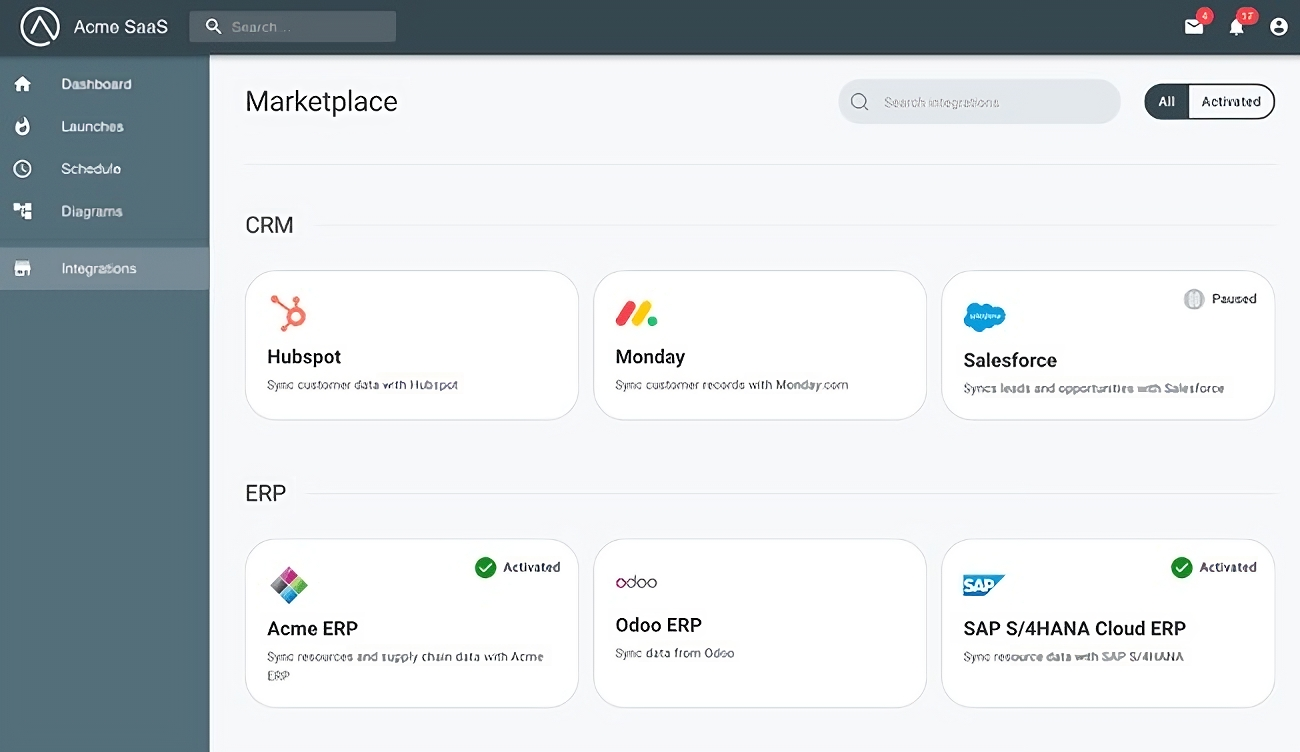Prismatic lands $22M to connect disparate B2B SaaS apps
IT teams today have to juggle an enormous number of tools, apps and systems. The average company was using 130 software-as-a-service (SaaS) apps as of 2022, according to Statista — a volume that’s impacting productivity. Eighty percent of companies responding to a recent MuleSoft poll said that app integration challenges are slowing down their organization-wide efforts, leading to data silos and disconnected departments.
Michael Zuercher says that he experienced the SaaS app integration headache firsthand while bootstrapping his first startup, Zuercher Technologies, a public safety agency software provider.
“We built around 600 integrations to customers’ other software. It was absolutely necessary, but became a significant burden and eventually ate up over half of our R&D capacity,” Zuercher told TechCrunch in an email interview. “Throughout this time, we realized integrations remained a complex, unique and largely unsolved problem for software companies.”
One solution is what’s known as integration platform as a service (iPaaS), a cloud-based type of service that helps organizations tie in and unify their apps, processes and data from a single pane of glass.
The iPaaS market is well-established at this point, having generated $3.47 billion in revenue in 2020 on its way to more than $9 billion by 2025. And companies have embraced iPaaS; one survey from 2021 found that 66% of corporations will invest in iPaaS to address their data integration and automation challenges.
iPaaS startup and incumbent offerings abound. A few include Integration.app, which uses AI models to reconcile disparate apps and services; Digibee, which recently raised $60 million in venture capital; and Amazon’s recently launched AWS AppFabric.
Zuercher thought he could — and still thinks he can — do better, however.
Today, Zuercher leads Prismatic, an iPaaS startup designing a solution to help business-to-business (B2B) SaaS companies connect their products to the other products their customers already use. Zuercher co-founded Prismatic with Beth Harwood and Justin Hipple in 2019, aiming to streamline app integration development to let SaaS companies more easily connect to third-party software.

Prismatic’s platform offers tools to connect apps via integrations and hooks from a single dashboard.
“SaaS companies are spending huge amounts of time and resources on integrations,” Zuercher said. “Prismatic reduces that burden by helping SaaS companies easily build integrations, deploy and manage those integrations at scale, and embed them in their solutions so their customers can self serve.”
Prismatic offers a low-code integration designer, a native development environment, a management console and a marketplace where customers can toggle and configure integrations. The platform recently launched an integration designer and expanded, new API connectors, “doubling down” on more developer-focused functionality, Zuercher says.
“We built Prismatic from the ground up to serve SaaS companies — not businesses building internal integrations — so features SaaS companies need, like developer-focused tooling, customer-specific configuration, version control, embedding and scalability were included from day one,” Zuercher said. “Prismatic’s embedded iPaaS provides a way for SaaS vendors to provide powerful integrations as a native part of their products, reducing the burden of integration on IT departments.”
Zuercher wouldn’t reveal exactly how many customers Prismatic has at present. But he said that the client makeup ranges from startups to Fortune 100 companies and that it drove annual recurring revenue growth throughout 2023.
In a possibly optimistic sign, Prismatic just today closed a funding round — a $22 million Series B — led by Five Elms Capital, the Kansas City-based growth equity firm. Bringing Prismatic’s total raised to $34 million, the new cash will be put toward growing the startup’s ~50-person team, expanding R&D and enhancing Prismatic’s existing tools and software.

Prismatic’s integrations marketplace, which aims to simplify the process of connecting apps to each other.
“We decided to raise equity to capitalize on the growth we saw in 2023 — a time when many SaaS companies were taking a step back,” Zuercher said. “In 2023, we saw strong, consistent growth throughout the year. We’re more confident than ever that our product is making an impact for B2B SaaS teams, and this funding will accelerate and expand our efforts.”
“Prismatic’s stellar growth since its Series A, achieved in less than a year, has solidified the indispensable role of embedded iPaaS in B2B SaaS companies,” Austin Gideon, principal at Five Elms Capital, added in a canned statement. “We’re seeing intense demand across our portfolio of B2B software companies for a platform to help augment integration capabilities. Scaling software companies are able to realize strong returns on investment by utilizing Prismatic’s platform, allowing teams to remain focused on delivering new products to customers. Partnering with this team again for the Series B gives us the opportunity to make meaningful advancements and improvements in the future of SaaS.”


